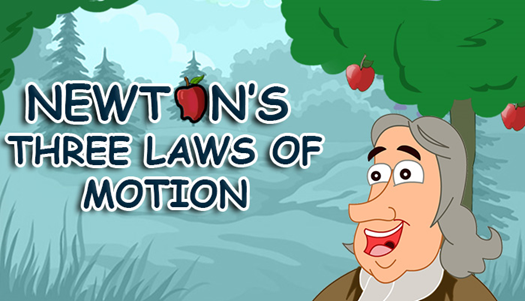Kids and Big Questions
AJ Robinson

Children have a delightful talent for torturing adults with big questions. Often it's as simple as using that one word inquiry of "Why?" There are plenty of others, such as why is the sky blue? What makes snow? How do birds fly? How does a boat float, but a rock sink?
A gifted child asks difficult questions.
When you have a gifted child, the questions can sometimes get quite daunting. I remember my wife Jo Ann commenting that by the time our daughter Alexa was in first grade her questions were complicated. I recall one in particular: the ball in the wagon conundrum.
As so many small children do, Alexa had a little red wagon. Also as so many children, she liked to carry things around in it. One item in particular was her favorite: one of her big bouncy balls. She pulled that wagon all over the neighborhood and enjoyed tossing and kicking that ball around with her friends.
Then one day she came to me with the question. "Daddy, tell me why the ball go backwards when I pull the wagon forward?"
This time I was prepared.
I'd actually seen a scientist on the television show, Nova, talk about how he asked the same question of his dad and how his dad answered it. Taking her by the hand, I led her outside. I told her to stand next to the wagon and watch as I pulled it.
Placing the ball right up at the front of the wagon, I cast a quick glance to the side to insure she was paying attention. I grabbed the handle and gave it a hard tug. Just as she’d said, the ball moved towards the back of the wagon.
This is how it appeared to me. I turned to Alexa. The look of shock and awe told me she’d seen what she needed to see. I opened my mouth to ask her about it. I never got the chance.
“Daddy, daddy, the ball stayed in the same place,” she blurted out.
I nodded. “That’s right, it did.”
She, of course, simply had to know why it had done that. Given her age, I decided not to launch into a long dissertation on Sir Isaac Newton and his Three Laws of Motion. I felt a simplified version was best.
I explained that when something is sitting still, it tends to want to stay that way, until something forces it to move. She readily accepted that. As she put it: she’d seen Grampa stay in his easy chair for a long, long time watching his favorite television shows, but when Grandma said it was time to eat, oh, he was up and at the table in no time. I had to laugh at that comparison, yet it was accurate. As Jo Ann has often said, her dad did tend to “follow his food source.”
Alexa never stopped learning.
As for Alexa, she’d learned a basic concept of the physical world. Others would follow, most taught to her by her teachers, but I was the one to explain Newton’s First Law of Motion. Granted, she wouldn’t know its name until later, but it meant a lot to me to be able to impart that little piece of science in her mind. I find it rather appropriate that I should be the one to teach her his First Law. It also makes me happy to see that she’s never stopped learning.
May her thirst, for knowledge, never go unsatisfied?
Combining the gimlet-eye of Philip Roth with the precisive mind of Lionel Trilling, AJ Robinson writes about what goes bump in the mind, of 21st century adults. Raised in Boston, with summers on Martha's Vineyard, AJ now lives in Florida. Working, again, as an engineeer, after years out of the field due to 2009 recession and slow recovery, Robinson finds time to write. His liberal, note the small "l," sensibilities often lead to bouts of righteous indignation, well focused and true. His teen vampire adventure novel, "Vampire Vendetta," will publish in 2020. Robinson continues to write books, screenplays and teleplays and keeps hoping for that big break.
- Old Movies
- A Mouthful
- Georgia on My Mind
- The End of Variety
- America in Trouble
- Home Improvement
- Language Barrier
Click above to tell a friend about this article.
Recommended
- David Simmonds
- Piece of Cake
- Whistling
- 2020 So Far

- Sjef Frenken
- Modes of Transportation
- Well, Well
- Dogs, Cats and Tofu

- Jennifer Flaten
- Words of Wisdom
- Warehouse Shopping
- Plumb Crazy

- M Alan Roberts
- Cries of Rebellion
- Sugar Daddy
- I Got Crabs

Recommended
- Matt Seinberg
- Rained on Chickens
- Hurricane Sandy 1
- More Back Surgery

- Streeter Click
- Bobby Darin
- Reel Guys Reviews
- Dick Summer Top 40

- JR Hafer
- Rosko
- Piet Soer
- Aging as a State of Mind

Recommended
- AJ Robinson
- Make the Call
- Scooby Science
- The Arcade

- Jane Doe
- Russians Hack Election
- Pink Friday
- A New Day

- M Adam Roberts
- Thanks a Million
- Learning to Fly
- No Quitter

- Ricardo Teixeira
- The Future
- Monkey Business
- The Unicorn



